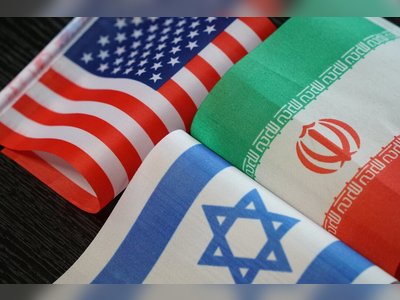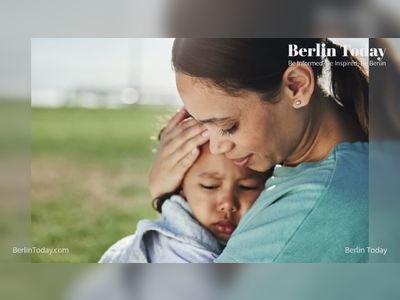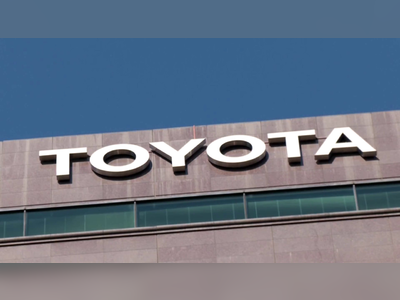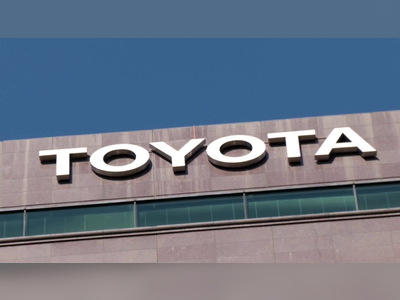Trump's Proposal for Reduced Tariffs in TikTok Ownership Negotiations
U.S. President aims to facilitate TikTok sale through tariff reductions amid ongoing national security concerns and regulatory challenges.
In a significant move concerning the ownership of TikTok, U.S. President Donald Trump has proposed a reduction in tariffs on Chinese goods in exchange for approval from the Chinese government regarding the sale of the popular short-video platform.
This proposal comes as discussions intensify over TikTok's operations in the United States, amidst ongoing national security concerns linked to its Chinese parent company, ByteDance.
Under U.S. regulations, TikTok was initially mandated to divest its U.S. operations or cease functioning in the country by January 19. However, the Chinese government has yet to agree to any sale.
This approval is essential, considering that ByteDance is headquartered in China.
Trump has indicated that Beijing may have some role in negotiating the terms of this potential sale, suggesting that he believes an agreement could be reached.
He remarked, "Maybe I’ll give them a little reduction on the tariffs or something like that to get the deal done," highlighting the importance of tariff reductions relative to the valuation of the TikTok platform.
Currently, TikTok has been granted a temporary delay from the deadline, with a 75-day extension set to conclude on April 5. Trump has indicated a willingness to consider further extensions, though no legal basis currently exists for such actions.
U.S. Vice President J.D. Vance expressed optimism that a satisfactory resolution regarding TikTok's future in the United States would be achieved by early April.
However, representatives from ByteDance and TikTok have articulated that a sale limited only to the U.S. division of the app would not be feasible, arguing it would undermine the integrity of the platform.
Trump has suggested that there are "various ways to purchase TikTok," reinforcing his administration's commitment to pursuing a resolution that serves American interests.
The algorithm that operates TikTok is crucial to its success, as it significantly impacts what content is presented to users.
During Trump’s previous presidential term, efforts to mandate a sale of TikTok’s U.S. operations were halted by judicial actions.
A law passed under President Joe Biden provides a stronger legal framework for a potential ban on TikTok; however, Trump has demonstrated an openness to maintaining the app in his recent campaign efforts.
China’s position has not shifted significantly since Trump's initial term, with new regulations instituted that require government authorization for the export of software algorithms.
While U.S. law necessitates that ByteDance relinquish control of TikTok, the company is reportedly optimistic about a potential resolution involving a proposal known as "Project Texas." This initiative aims to ensure that U.S. user data is stored domestically, with oversight from Oracle.
Yet, previous assessments deemed this proposal insufficient as it would allow ByteDance to retain ownership.
In parallel, TikTok is exploring a similar strategy in Europe, dubbed "Project Clover," focused on data storage solutions in Ireland, as it navigates regulatory landscapes and seeks to bolster user data security.
This proposal comes as discussions intensify over TikTok's operations in the United States, amidst ongoing national security concerns linked to its Chinese parent company, ByteDance.
Under U.S. regulations, TikTok was initially mandated to divest its U.S. operations or cease functioning in the country by January 19. However, the Chinese government has yet to agree to any sale.
This approval is essential, considering that ByteDance is headquartered in China.
Trump has indicated that Beijing may have some role in negotiating the terms of this potential sale, suggesting that he believes an agreement could be reached.
He remarked, "Maybe I’ll give them a little reduction on the tariffs or something like that to get the deal done," highlighting the importance of tariff reductions relative to the valuation of the TikTok platform.
Currently, TikTok has been granted a temporary delay from the deadline, with a 75-day extension set to conclude on April 5. Trump has indicated a willingness to consider further extensions, though no legal basis currently exists for such actions.
U.S. Vice President J.D. Vance expressed optimism that a satisfactory resolution regarding TikTok's future in the United States would be achieved by early April.
However, representatives from ByteDance and TikTok have articulated that a sale limited only to the U.S. division of the app would not be feasible, arguing it would undermine the integrity of the platform.
Trump has suggested that there are "various ways to purchase TikTok," reinforcing his administration's commitment to pursuing a resolution that serves American interests.
The algorithm that operates TikTok is crucial to its success, as it significantly impacts what content is presented to users.
During Trump’s previous presidential term, efforts to mandate a sale of TikTok’s U.S. operations were halted by judicial actions.
A law passed under President Joe Biden provides a stronger legal framework for a potential ban on TikTok; however, Trump has demonstrated an openness to maintaining the app in his recent campaign efforts.
China’s position has not shifted significantly since Trump's initial term, with new regulations instituted that require government authorization for the export of software algorithms.
While U.S. law necessitates that ByteDance relinquish control of TikTok, the company is reportedly optimistic about a potential resolution involving a proposal known as "Project Texas." This initiative aims to ensure that U.S. user data is stored domestically, with oversight from Oracle.
Yet, previous assessments deemed this proposal insufficient as it would allow ByteDance to retain ownership.
In parallel, TikTok is exploring a similar strategy in Europe, dubbed "Project Clover," focused on data storage solutions in Ireland, as it navigates regulatory landscapes and seeks to bolster user data security.
AI Disclaimer: An advanced artificial intelligence (AI) system generated the content of this page on its own. This innovative technology conducts extensive research from a variety of reliable sources, performs rigorous fact-checking and verification, cleans up and balances biased or manipulated content, and presents a minimal factual summary that is just enough yet essential for you to function as an informed and educated citizen. Please keep in mind, however, that this system is an evolving technology, and as a result, the article may contain accidental inaccuracies or errors. We urge you to help us improve our site by reporting any inaccuracies you find using the "Contact Us" link at the bottom of this page. Your helpful feedback helps us improve our system and deliver more precise content. When you find an article of interest here, please look for the full and extensive coverage of this topic in traditional news sources, as they are written by professional journalists that we try to support, not replace. We appreciate your understanding and assistance.











